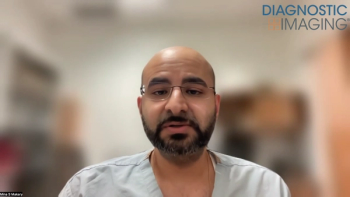
Radiologists See More Clinically Complex Patients
Radiologists, particularly interventional radiologists, see sicker patients than many other physicians.
Radiologists, particularly interventional radiologists and those who have teaching affiliations, see more clinically complex patients than most physicians nationally, according to a study published in the journal
Researchers from New York, Virginia, and Georgia sought to assess Medicare patient complexity by physician specialty and to further identify radiologist characteristics associated with higher patient complexity.
The researchers identified the average beneficiary Hierarchical Condition Category (HCC) risk scores for all physicians using 2014 Medicare claims data. These scores were compared among physician specialties and further stratified for radiologists based on a range of characteristics.
The results showed that of 549,194 physicians across 54 specialties, the mean HCC risk score was 1.62 ± 0.75 and of the 54 specialties, interventional radiology ranked 4th, nuclear medicine ranked 16th, and diagnostic radiology ranked 21st.
The risk scores for the 31,175 radiologists were higher for radiologists with teaching affiliations (2.03 ± 0.74) compared with those who did not have teaching affiliations (1.72 ± 0.61). Other differences included:
- Members with practice size of 100 or more 1.94 ± 0.70
- Members with smaller practice sizes 1.59 ± 0.79
- Urban practices 1.79 ± 0.69
- Rural practices 1.67 ± 0.59
- Subspecialized 1.85 ± 0.81
- Generalized 1.68 ± 0.42
Among noninterventional radiology subspecialties, patient complexity was highest for cardiothoracic (2.09 ± 0.57) and lowest for breast (1.08 ± 0.32) imagers. Teaching affiliation was the strongest independent predictor of patient complexity for both interventional and noninterventional radiologists
The researchers concluded that radiologists on average serve more clinically complex Medicare patients than most physicians nationally, although there was variability among the radiologists themselves. “With patient complexity increasingly recognized as a central predictor of clinical outcomes and resource utilization, ongoing insights into complexity measures may assist radiologists navigating emerging risk-based payment models,” they wrote.
Newsletter
Stay at the forefront of radiology with the Diagnostic Imaging newsletter, delivering the latest news, clinical insights, and imaging advancements for today’s radiologists.













